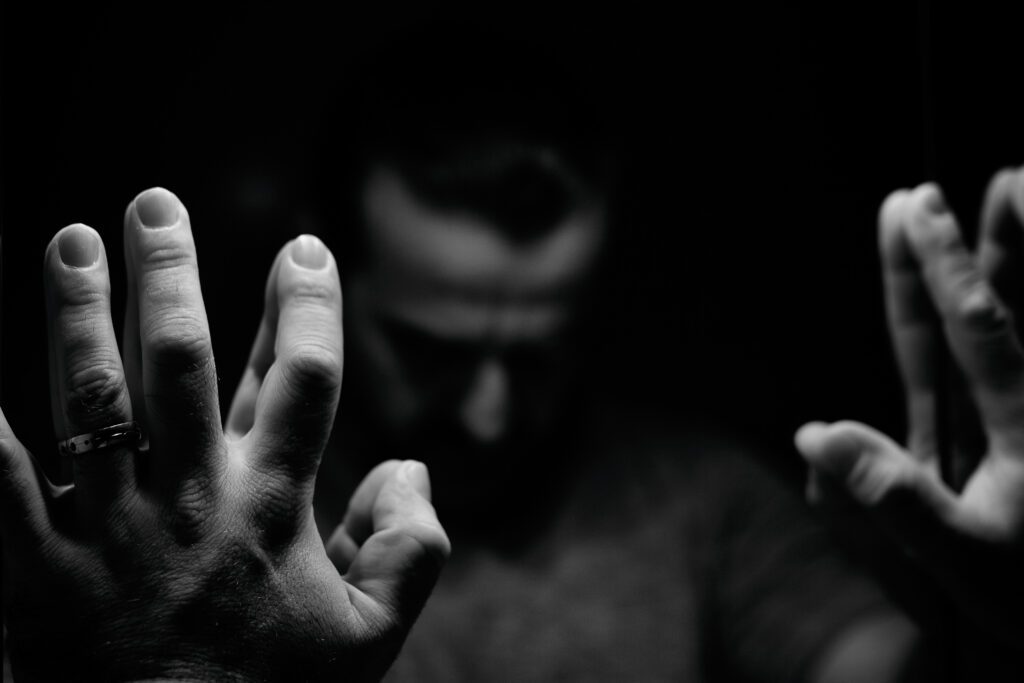by JENNIFER GOODSON, MA, LMHC
In times of the deep pit dwelling, it is hard to see light. The walls are dark. Isolation is the dreaded retreat, but it brings comfort to those who struggle with depression. The mind is the enemy, emotions are a confusing labyrinth, and loneliness is the best answer because understanding is hard to find.
Depression is not kind. It is not a friend. It knows no bounds. Depression selects whomever and whenever and — when untreated — destroys lives. It can begin so small that one finds themselves in the dark pit. Alone. Cold. Miserable. Most of the time, not by choice.
The deep pit dwelling is a place where many who suffer from clinical depression find themselves. It is a struggle to express their feelings, for many do not understand or have the “right” words to say. It is the most challenging place to climb out of … when alone.
When facing the challenges of depression, the body, mind, and spirit are unbalanced. A balanced connection among these three components is vital to managing a depressed mood, anxiety, and emotions, even down to patterns of thought. Even when one is off-kilter, the other two have to compensate, bringing exhaustion, brain fog, lack of motivation, and confusion.
Chaos. It brings chaos.
All the unwanted party friends of depression begin jumping on the merry-go-round. One will find themselves spiraling fast into the pit, grasping for some form of control. It is a mind game. Emotions have complete control, the physical body falters, and the spirit experiences disconnection and emptiness. This is now the new normal. One of constant darkness.
Support from loved ones or friends is not just desired; it’s a deep-seated need. However, the feeling of being a burden to others overtakes the initiation of connection. A person can only withstand such suffering alone for so long.
When one finds themselves at their end, the place where they have nothing left to give, the infamous words “I am done” burst from within. It is a cry for help, a plea for anyone to reach in and pull them out of the pit.
Choosing to grab the helping hand is a choice that brings hope, a beacon of light in the darkness of depression. Grasping the hand offering hope is an action of desired freedom. The climb out of the pit takes courage and support from many different resources.
Connection is a must to begin the journey. From family and friends to employers, to clergy and professionals, one can find balance. Approaches to freedom look different for everyone. Each experience is different and will need different healing components. For some, therapy with a licensed professional or seeking medication from a psychiatrist is best. For others, spending time with family and friends is a starting point, even when an “I don’t feel like” is present. Yoga, walking, and spending time outdoors provide balance. Meditation, prayer, or attending group therapy or support groups brings accountability and eliminates isolation. Most of the time, a combination of all the above is needed.
Creating a daily routine will bring stability to the mind, activation to the body, and peace to the spirit. This balance can begin with daily meditation or journaling, preparing healthy meals that fuel the mind, body, and spirit, or simply maintaining daily hygiene.
Practicing self-compassion is a must. It means being kind to oneself in thought patterns and spoken words. This act of self-care opens the floor for self-love and builds confidence.
Remaining present by grounding oneself is an act of being mindful of the here and now. It is an acceptance of “I can only control what is mine. I am only responsible for what I can do right now.” This aids in breaking the pattern of negative thought cycles, providing new perspectives fueled by hope.
It does not matter the pace at which one travels but the progress that keeps momentum.
If you are struggling with depression or any mental illness, know you are not alone. Reach up and grab hold of those who are wanting to help. Don’t allow shame or the thought of being a burden keep you from experiencing the light.
Don’t quit!
ABOUT THE AUTHOR: Jennifer Goodson, MA, LMHC, is a licensed mental health counselor with an office in Winter Haven, FL. She holds a Master of Arts in Clinical Mental Health Counseling from Regent University in Virginia Beach, Virginia. For more information, visit www.pathwaycounselingservice.com.
